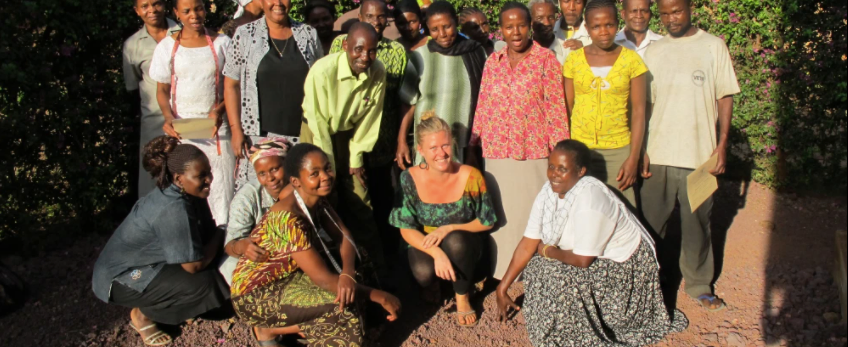
Stories in Tanzania
Shufaa, a widow and a single mother of 4 children, 2 boys and 2 girls, had been struggling with a persistent cough, fever, chest pain, and loss of her weight. A doctor conducted medical checks and tests for her, and it turned out that she had severe tuberculosis and was HIV positive. Even though the doctor told Shufaa that a peaceful life was still possible with proper treatments for tuberculosis and HIV, she could not choose to take the treatments because she was afraid of the consequences of disclosing her HIV status to her family, friends, and neighbors. Shufaa knew that the impact of the stigma on HIV would be more devastating than HIV itself in her village. 5 years later, without having taken the treatment, she came to see another doctor again with her health deteriorating. The doctor told her that she needed to start the treatment immediately, so she finally did. After her husband passed away, Shufaa made a living for her children by selling pancakes and vegetables. However, since she started the treatment, her neighbors became aware of her HIV, so they no longer buy things from her due to the irrational fear of getting HIV from her and her products. Whenever she walked to church or hospital, almost everyone was pointing their fingers at her. She could not stop thinking about how she could raise her children…
Neema, a mother of two children, one boy and one girl, had been beaten by her husband, given almost no food, and forced to work hard every day. Her children were too young and she had no other places to go to, so she had to stay with him. Sometimes her husband forced Neema to sleep on the floor without a mattress instead of their bedroom. One day, her husband brought a woman home and slept with her on Neema’s marital bed while Neema was watching them making love. After this, Neema could no longer bear with her husband so decided to escape. Being away from him was so difficult that it took 4 years of her life, but she managed to do so. However, when he married another woman, he demanded Neema to give her children back to him. Neema refused to do so, but the pressure from his parents, siblings, and the male-dominant society itself was too strong to resist. Eventually, she had to give up her children on a condition in which the children visit her from time to time. Her children started to live with the new stepmother, but she beat up and abused Neema’s daughter. The girl was traumatized as much as she developed difficulty with talking even with Neema…
Even today, a lot of women and young children in Tanzania are experiencing harsh realities such as health difficulties, discrimination against HIV, inequality, violation of their rights, domestic violence, and child abuse. These problems must be addressed, and all the women, children, and victims should have opportunities for education about their rights and about means to seek help in their community so that they can seek help and solve their problems in their lives, fight against injustice, and eventually dismantle the structure of their community itself as necessary for them to live peacefully
To Close
MWO has the vision to achieve, but the only problem is the budget to execute the plan. We definitely appreciate any amount of donation from your kindness. We imagine that everyone on this planet is currently suffering from the COVID-19 pandemic, but as much as it could be a life-threatening pandemic for everyone, we have been struggling with the issues regarding our human rights, poverty, and HIV and AIDS pandemic in Tanzania. Please support us so that people like Shufaa and Neema in Tanzania can live a better life, which they deserve as who they are.
